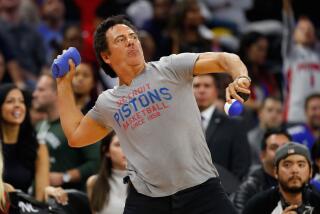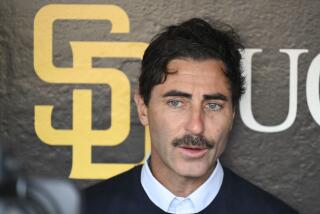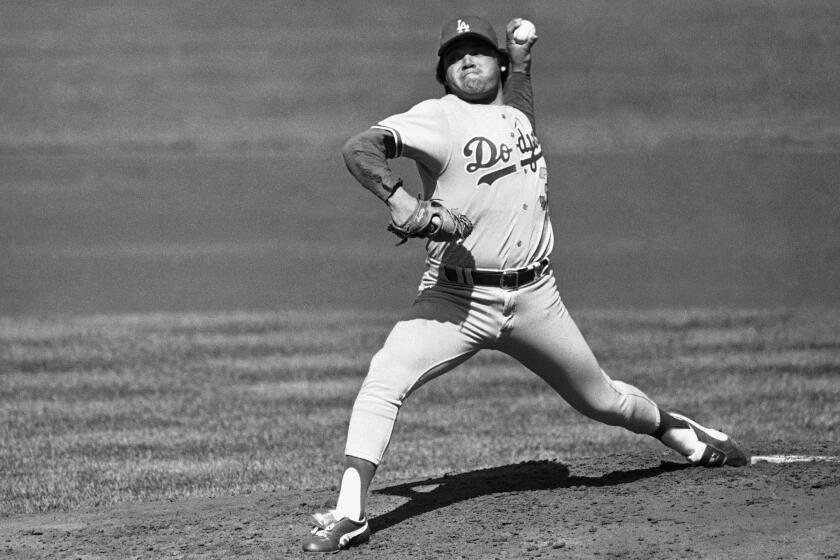A Dodgers universe where Peter O’Malley owns the Padres
I’m trying to be happy for Peter O’Malley. That shouldn’t be hard, right? He has given his life to baseball, the Dodgers and Los Angeles. He wanted back in baseball, and now he is. Good for him.
But it’s one of those times for putting the hands together in polite applause while fighting back a tear. A happy-sad moment. Maybe it shouldn’t be that way, but that’s how it feels.
Despite months of warning that Major League Baseball’s approval of O’Malley and friends as the new owners of the Padres was going to happen, once it was announced Thursday, it was still hard to fully digest.
It’s not difficult to argue that O’Malley was more the Los Angeles Dodgers than Sandy Koufax or Vin Scully. His family made the great leap and brought the team to Los Angeles. Built Dodger Stadium. Ran one of baseball’s most cherished franchises, led it to five World Series titles here and made the team part of the fabric of L.A..
And now he owns the San Diego Padres.
Despite how good it is for baseball and the Padres, it feels wrong on multiple levels, or at least unnatural. Juan Marichal became a Dodger, so we already knew anything was possible. Still, you think O’Malley and you think Dodger blue, not whatever color scheme the Padres have this season.
It’s not like he’s going to be running the team for the next decade either. He views himself as more of a transitional leader. He may only be directly involved for a couple of years.
Ron Fowler, CEO of Liquid Investments, will be the controlling owner. Included in the ownership group are O’Malley’s sons, Kevin and Brian, and nephews Peter and Tom Seidler. Golfer Phil Mickelson is also part of the group that purchased the team for a reported $800 million.
That’s a long way from the $2.1 billion the Dodgers just sold for in a sort-of auction that O’Malley was part of until the final stages. Still, O’Malley returning to the Dodgers seemed more a fanciful, romantic concept than budding reality.
The irony is, O’Malley sold the Dodgers because 1) he was concerned about the inheritance tax in passing the team on to family, and 2) was convinced family ownership of MLB teams had became financially unworkable and that the future belonged corporate ownership.
Now he’s back, a deeply Los Angeles man owning the team from San Diego. It feels wrong, but good for him. But I won’t feel bad about feeling a little sad.
ALSO:
Melky Cabrera suspension doesn’t mean Dodgers can celebrate
It’s suddenly all working for Dodgers, who win fourth straight, 9-3
Reliever Brandon League struggles through early going with Dodgers
More to Read
Are you a true-blue fan?
Get our Dodgers Dugout newsletter for insights, news and much more.
You may occasionally receive promotional content from the Los Angeles Times.










